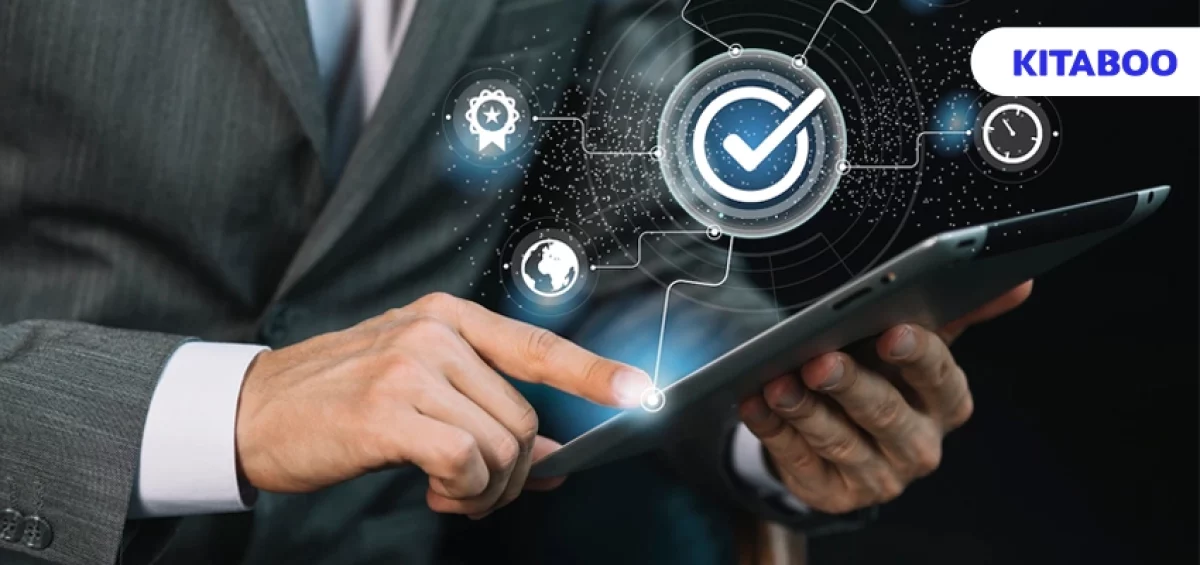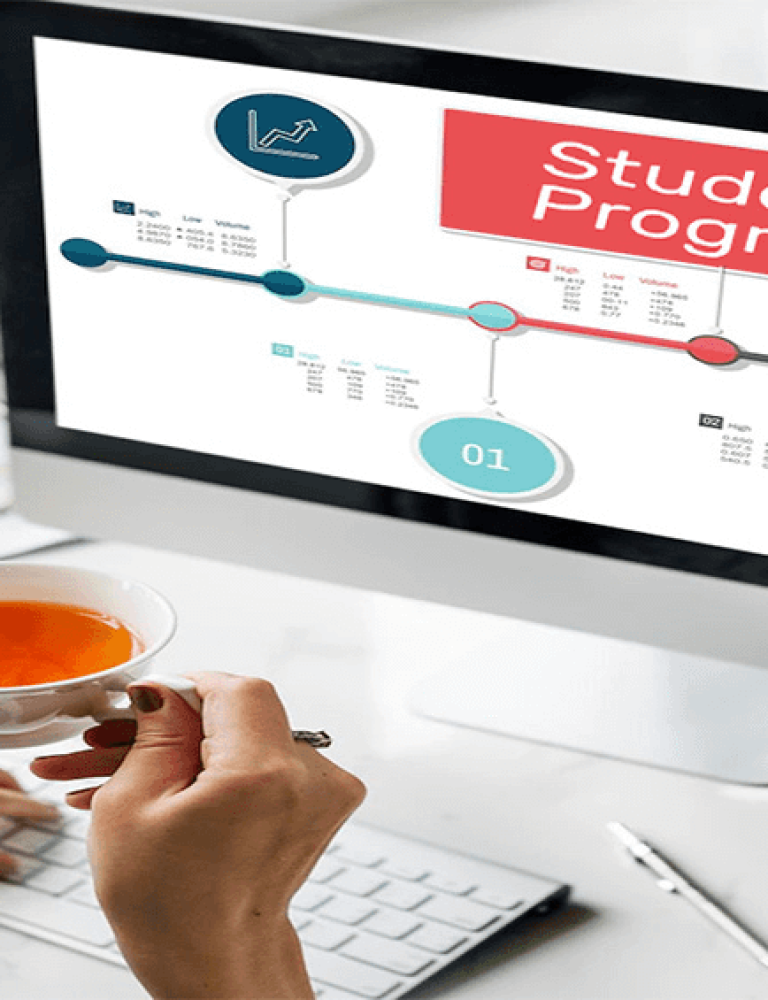DRM, or Digital Rights Management, has become even more important today as everything is digitalized. Especially in the case of the education industry, which contributes a large amount of online learning resources to the internet, digital rights management becomes even more important.
Today, the digital rights management market stands at a value of $4.96 billion. This highlights the significance of DRM in various industries, including higher education. Educational content creators are waking up to managing the rights to their content to ensure fair use and distribution. And as the market for digital rights management continues to grow, it highlights the increasing recognition of the need for secure platforms in the digital landscape.
In this post, we will explore DRM – secure platforms and how this can help safeguard your digital content for higher education. Read on!
Table of Contents:
III. How Do DRM-Secure Platforms Work?
IV. Benefits of Using DRM Platforms
- Protection of Intellectual Property
- Controlled Student Access to Repositories
- Controlled Distribution of Learning Resources
- Localization of Learning Content
- Enhanced Data Security
V. Safeguarding Learning Resources Against Unintended Access
What Does DRM Refer to?
DRM stands for Digital Rights Management. It is a robust method that educational content creators use to control the sharing, distribution, and management of their learning content. DRM empowers content creators and owners to protect their copyrighted learning material from being misused or distributed in an unauthorized fashion.
As digital educational content spreads through peer-to-peer exchange over the internet, it is important to restrict access and distribution legalities to avoid piracy. Especially if there is consumer data involved, it is even more important to put effective access controls in place to prevent theft and misuse of the materials. This is where digital rights management comes in.
For digital textbook platforms like KITABOO, DRM plays a vital role in ensuring that the intellectual property rights of educational content creators and owners are protected. This platform not only provides a user-friendly interface for accessing digital textbooks but also incorporates robust DRM features to enhance the security and integrity of the educational content.
Why is DRM Important?
Digital Rights Management is important because of the nature of the internet, which allows free and uncontrolled distribution and sharing of resources that are in a user’s hands.
If you have digital educational assets, like training modules, eBooks, or other materials of curriculum, you need a DRM–secure platform to manage all of that in situations where:
- The educational materials are subscription-based.
- You are creating your own educational content to share.
- You are using live virtual environments where content can be easily shared anywhere, even without consent.
- If you have concerns, your content may be pirated somewhere down the line.
- You wish to regulate the distribution of the learning materials so that you can monitor their impact.
- You wish to record the spread and popularity of certain educational assets for further processes.
DRM-secure platforms enable educational content creators to produce content freely by managing all the licensing and pertaining details in the background and with high efficiency.
How Do DRM-Secure Platforms Work?
DRM is actually a technology that is included as a part of digital asset management systems. These platforms allow the users or educational institutions to control access to their copyrighted learning materials. Some of the ways the platforms achieve this are:
Using Watermarks
If the educational materials contain infographics, watermarks can be used to inform the owners if the content is copied, manipulated or used in any way.
Metadata
There are ways where digital assets can be monitored for misuse using the information stored in their metadata. This is especially useful for educational videos, photographs, and audio files.
Embed Codes
These codes enable the creators or owners to control how their assets are used or distributed in the online space. Since licensing on educational content can change or expire, the embed codes allow updating the entire information.
License Agreements
End User License Agreements (EULA) are an extremely common way to encourage resource users to adhere to the distribution and usage restrictions that the creator or owner imposes.
In this regard, note that DRM platforms achieve the data security and monitoring task in four ways.
Here are the four key ways through which DRM platforms achieve data security and monitoring tasks:
- Encryptions: Resources that are deemed valuable by the creators or owners are encrypted to prevent unauthorized usage.
- Governance: The encryption key is then regulated by a set of rules that must be met before access to the content can be granted.
- Authentication: If there is a user that meets all the rules set for governance, that user is then authenticated for access to the educational resources.
- Enforcement: The DRM system periodically examines each users’ credentials to ensure that they still fall under the access category to enforce DRM.
Benefits of Using DRM Platforms
DRM platforms offer numerous benefits for educators, content creators, and educational institutions in higher education settings. Here are some key advantages:
1. Protection of Intellectual Property
A majority of higher education professionals leverage the power of digital and remote learning. This inevitably creates an online space where educational materials can be freely accessed. Digital Rights Management enables control over the downloads that students are making, providing some control over its distribution.
Digital textbook platforms like KITABOO, in this regard, offer enhanced protection of intellectual property through the implementation of DRM. It not only safeguards the intellectual property of content creators but also provides specific advantages to the learners as well.
2. Controlled Student Access to Repositories
To ensure that only the most relevant content is available to students according to the grade they are in, DRM systems allow for controlled access. It helps prevent unauthorized access to content for use.
3. Controlled Distribution of Learning Resources
If the educational material is a source of revenue for the educators, imposing copyright control using DRM platforms helps them secure their income stream. It empowers them to put control over potential piracy of their content.
4. Localization of Learning Content
It is possible to regulate the regions, localities, or countries where the learning materials can be accessed and circulated using DRM systems. This is important in education to keep the learning localized and relevant.
5. Enhanced Data Security
DRM systems help to enhance the security of the resources housed in them. By preventing unauthorized access, controlling resource use, and tracking its distribution, educators have full control over their content.
Safeguarding Learning Resources Against Unintended Access
As education becomes primarily digital, it poses more challenges to control the use and distribution of educational materials. The internet allows unrestricted use of whatever users can access and download, making it hard for educators to benefit from creating high-quality content. It is here that DRM systems can help educational institutions manage their learning content.
Digital textbook platforms like KITABOO provide a secure and controllable environment for educators and students to come together and learn. The resources are easily managed through powerful features like content creation and organization, providing users with better control over them.
Write to us at KITABOO@hurix.com for more info!
Discover How An Ebook Conversion, Publishing & Distribution Platform Can Help You
Kitaboo is a cloud-based content platform to create-publish & securely distribute interactive mobile-ready ebooks.
You May Also Like








